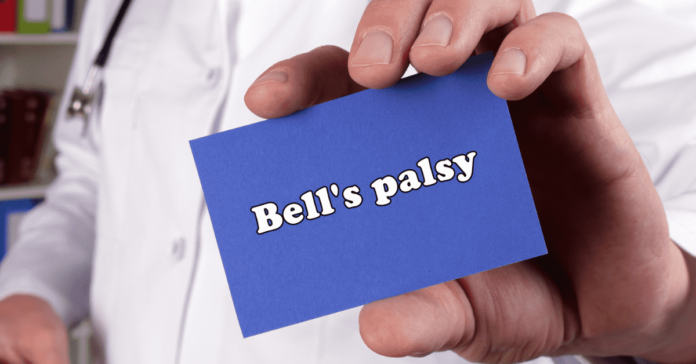Bell’s Palsy is commonly known as Idiopathic Facial Palsy. It is a condition that causes paralysis and temporary weakness on one side of the face.
It is estimated that 25-35 people have Bell’s Palsy for every 1, 00,000. In India, about 10% of those diagnosed with Bell’s Palsy die due to complications of the condition. However, it is important to note that Bell’s Palsy is a very manageable condition if the right care is taken at the right time. Here are seven must-know things about Bell’s Palsy.
What is Bell’s Palsy?
The human head has 12 major nerves known as the cranial nerves. Bell’s Palsy happens when the 7th cranial nerve, more commonly known as the facial nerve, is affected.
The facial weakness or paralysis usually occurs on one side of the face, though both sides are affected in rare cases. The condition is temporary, and all signs of paralysis should disappear within six months of the first symptom.
What are the Symptoms?
The onset of Bell’s Palsy symptoms is sudden, and you might notice them when you wake up in morning or when you try to eat or drink.
The primary symptom of the condition is drooping, along with difficulty in opening or closing the eye of the side that is affected. Other signs or symptoms of Bell’s Palsy that you must look out for include:
- Facial weakness
- Dry mouth or eye
- Sound sensitivity
- Headache
- Difficulty drinking or eating
- Inability to make or change facial expressions
- Drooling
- Eye irritation
- Twitching of the facial muscles
If you are experiencing any of these symptoms, you must get immediate medical attention. Many of these symptoms overlap with those of a stroke or brain tumor. These conditions are more serious and life-threatening.
What are the Causes of Bell’s Palsy?
Bell’s Palsy is caused when the seventh cranial nerve or the facial nerve is compressed or swollen. This results in facial weakness or paralysis that is synonymous with the condition.
Researchers and scientists are not sure of what causes the facial nerve to be affected. However, in most cases, it can be traced back to an infection caused either by a virus or bacteria. Some of these infections include:
- Lyme disease
- Epstein-Barr virus
- Sarcoidosis
- Herpes simplex virus
- HIV
- Herpes zoster virus
- Mumps
- Flu
- German measles
- Respiratory illnesses
Recovery from Bell’s Palsy requires that your underlying infection be treated or managed as the case may be.
What are the risk factors for Bell’s Palsy?
Certain factors could put you at a higher risk for Bell’s Palsy. These include:
- Being pregnant
- Having a respiratory infection
- Being diabetic
- Having a family history of Bell’s Palsy
If you have any of these risk factors and are worried about developing Bell’s Palsy, then you can talk to your primary healthcare practitioner.
What Are the Complications of Bell’s Palsy?
The good news is that most people with the right medical care and attention make a full recovery from Bell’s Palsy. However, people with severe cases might experience some further complications. These include:
- Permanent damage to the seventh cranial nerve.
- Eye infections, ulcers, or even blindness caused due to its dryness.
- Synkinesis, which is where one part of the body responds involuntarily to the movement of another.
How is Bell’s Palsy Treated?
Most cases of Bell’s Palsy can be left untreated until the condition corrects itself. However, this can take a long time, during which you could feel uncomfortable, depending on the severity of your symptoms. The following treatments could help hasten your recovery or ease the symptoms of Bell’s Palsy.
Medication
- Corticosteroids to help with the inflammation
- Eye drops to help your eye stay hydrated
- Pain medications for any mild pain
- Antibacterial or antiviral medications to address any underlying causes
Home Remedies
- Warm compress to ease pain
- An eye patch to decrease dryness
- Massages
Physical Therapy
The paralyzed facial muscles will need physical therapy to keep them from permanently contracting and easing any pain.
What is the Prognosis for Bell’s Palsy?
Studies have shown that 85% of patients with the condition recover spontaneously within three weeks of their first symptoms developing. Most patients experience full nerve recovery. Only in rare cases do people experience some muscular weakness or deficits. Your prognosis for a full and healthy recovery from Bell’s Palsy is very good, especially if you receive timely medical attention.
Conclusion
Bell’s Palsy is a sudden condition that affects the facial nerve resulting in partial facial paralysis. The characteristic facial drooping marks it. However, the patients make a full and quick recovery in most cases. You must get good medical attention if you experience any symptoms of Bell’s Palsy.
Frequently Asked Questions (FAQs)
Can stress cause Bell’s Palsy?
Research has shown that stress affects and weakens a person’s immune system, leaving them susceptible to various viral and bacterial infections, which could be a precursor to Bell’s Palsy. It would help if you learned how to manage your stress levels to maintain your overall health.
Does Bell’s Palsy affect speech?
Since the facial nerve is affected by this condition, you will see several patients with an affected speech pattern. This is mainly due to the weakness or paralysis of the muscles around the mouth. However, once the patient makes a full recovery, their speech abilities should be back to normal.
How do I tell the difference between Bell’s Palsy and a stroke?
Bell’s Palsy affects younger people, while a stroke is typically observed in people above the age of 60 years. A key difference is that any muscular weakness or paralysis is observed mostly in the lower region of the face in case of a stroke. In the case of Bell’s Palsy, both the upper and lower parts of the face are affected. Typically, Bell’s Palsy patients will not have any other accompanying symptoms.


















